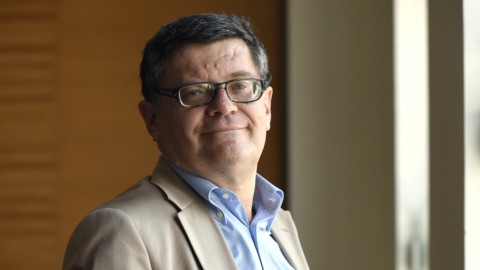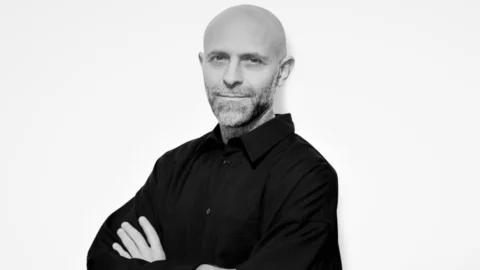“It is not true that in Italy we have not done so in recent decades an energy policy, in reality, contrary to widespread current opinion, we have made choices, only they have proven to be wrong”.
Charles Stagnaro, expert in industrial policy and director of research and studies of theBruno Leoni Institute, studied thoroughly the reasons for the energy crisis coming to the conclusion that we need a deep rethinking our policies also overcoming many of our cultural and social taboos. It is a question of tackling the emergency while setting up a medium-long term strategy to make our supplies more secure and continuing, without fancy flights, towards the reduction of emissions harmful to the environment.
The causes of the gas crisis
The emergency today depends on gas crisis. The crisis began before the outbreak of war triggered by the Russian invasion of Ukraine due to the mistakes made throughout Europe and above all in Italy. Suffice it to say that until just before last Christmas, many opposed theinclusion in the European taxonomy which must guide us towards the complete decarbonisation of gas and nuclear power.
According to many experts we should have get rid of the gas over the next 15-20 years and therefore no new investments in research and development were necessary valorisation of new deposits, and indeed that it was possible to begin to close the existing ones. In fact, in the intervening period, it was believed that we would have no difficulty finding gas around the world. The consequence was that no one made investments to exploit internal sources.
In Italy in particular they have been placed obstacles of all kinds to gas extraction which we also have, for example in the Adriatic, so much so that in less than twenty years we have gone from a domestic production of over 20 billion cubic meters to less than 3 billion (our gas imports from Russia amount to about 29 billion cubes) “I don't think it's possible – says Stagnaro – to go back to those levels, but we will certainly be able to reach an intermediate level of production and therefore much more consistent than the current one.”
Moreover the gas extracted in Italy would also be more ecological than that coming from remote countries, since the short journey to places of consumption would lead to fewer losses and less dispersion of gas into the atmosphere.
The ceiling on the price of gas
To deal with the emergency, our government is thinking of various avenues. One is to put a ceiling on the price of gas that we import. But how is it supposed to work? In a recent interview, Prime Minister Mario Draghi advanced the hypothesis of putting a ceiling only on the gas we import from Russia in the belief that the Russians, who need to sell their gas in order to keep their economy going, will have to accept such an imposition. But if Putin decides to turn off the taps?
“If this were the way to come to an embargo – argues Stagnaro – then it would be better from a political point of view for us Europeans to decree it, putting Russia with its back to the wall and forcing it to come to terms with its own aggressive choices towards Ukraine and the West”.
All alternatives to Russian gas
However, linking the short term with the medium term, our Government is acting with speed and determination, considering that to cushion the impact of a possible lack of Russian gas we will have to activate all possible alternatives: boost the production of energy from renewables, reactivate our coal-fired plants, boost national production, unblock the construction of waste-to-energy plants which, in addition to solving the waste problem, could produce steam to generate electricity and, as is already the case in various Italian cities as Brescia and Turin, to provide heating to large city districts.
Of course there is search for alternative producers as happened with Algeria and with liquefied gas for which we will have to have liquefaction plants that have been blocked by decades of populist demagoguery. But each of these alternatives has problems. Let's take renewables. There are some resistance from environmentalists to both photovoltaic and wind power. There is the problem that these are not continuous energies and therefore at night or when the weather conditions are not favourable, they do not produce enough, while the battery banks are too expensive for the moment. “In addition – underlines Stagnaro – most of the 180 GW of new renewable power projects are located in Southern Italy and therefore far from the main consumption centres.
It would therefore be necessary to redo all our transport lines with a disproportionate cost and with truly considerable authorization problems for the pylons. Remember that it took over 10 years to build a new connection cable between Sicily and Calabria. In short, we risk not being able to use all this renewable energy even if we were really able to install “only” 60 GW, that is a third, of all those requested. And the idea of using the extra electricity to make green hydrogen seems to belong in the dream book due to technical problems of transport and use.
The coal and nuclear dilemmas
The use of coal it would obviously be temporary given its high pollution rate. And yet it should also reduce the cost of green certificates increased four or five times in a few months. There is then nuclear power. France, Great Britain and Finland have launched plans for the construction of new plants. Meanwhile, technologies are improving so much that it is expected that smaller plants with less production of radioactive waste will soon be available. Something is changing in the perception of Italian public opinion, but for the moment it doesn't seem that the time is ripe for review our ancient opposition to the atom.
While the Government is trying to change the direction of our energy policy, and probably should do it with greater determination and greater clarity on many issues, it is proceeding with subsidies for curb the price hike.
“Of course – says Stagnaro – but we should be more selective in the use of public money by finalizing resources only to the weakest segments of the population and to certain types of businesses which, with current gas prices, risk closure. More than 20 billion have been spent so far and another 6 have been announced for the next few weeks. How much can we sustain similar spending levels?”
Gas: the imbalance between supply and demand
There is also the idea that one must change the method of calculating the energy price electricity which today appears too dependent on the price of gas while other sources of electricity production are not affected by increases in the price of this fuel (hydroelectric, renewable and, for those who own it, nuclear). Stagnaro is very clear on this problem: "there are various reasons why today it would be advisable to change the method of calculating the price of electricity, but it is an illusion to think that in this way the consequences of the soaring price of gas. Moreover, it is one decision to be taken at European level with the times that this would require”.
“But we need to have a clear idea that the basic problem today consists of one imbalance between gas supply and demand which was determined on the market last year for some economic reasons and for structural errors in energy policy. It is therefore necessary to quickly aim to remedy this imbalance with a reduction in demand and that is using other energy sources instead of gas, and at the same time as an increase in supply with new investments culpably hindered in Europe in the past years”, concludes the research and studies director of the Bruno Leoni Institute.
There is a cure for getting out of the energy crisis in a reasonable time. It takes clear ideas and a lot of political courage to overcome taboos and make truly innovative choices.





